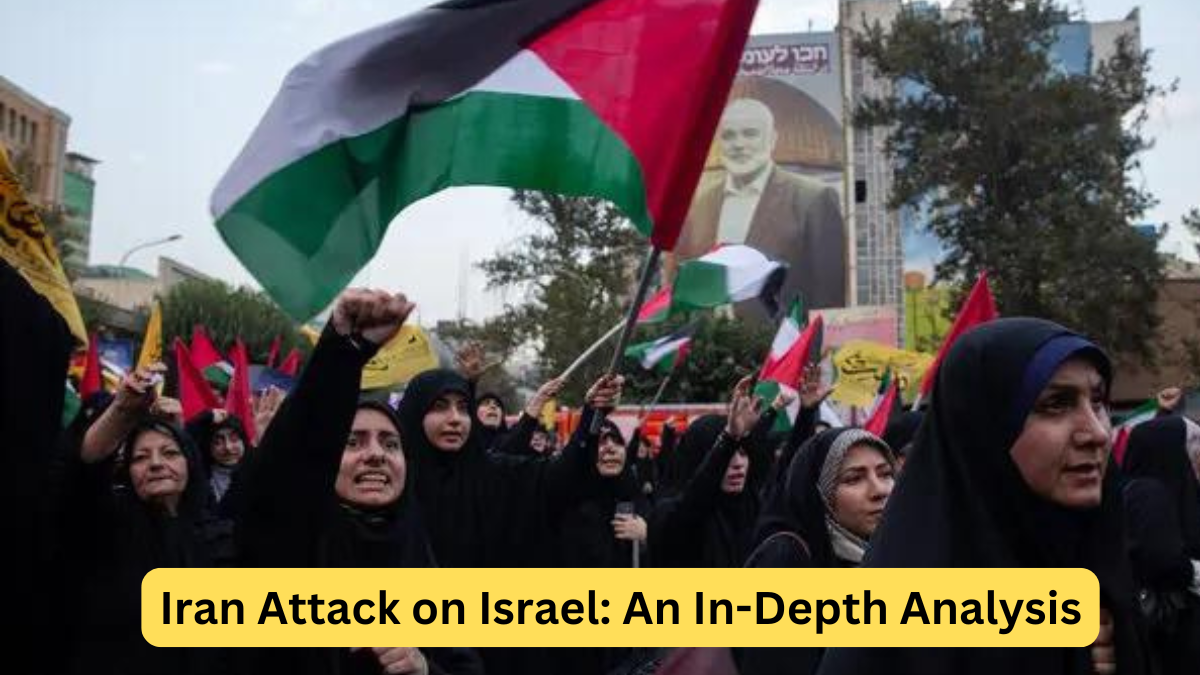The longstanding tension between Iran and Israel has frequently dominated international headlines, with the most recent events further escalating this volatile relationship. On [date], an attack on Israel attributed to Iran brought the two nations’ conflict to the forefront once again. This blog post explores the implications of the attack, the historical context, and the potential future ramifications.
Historical Context
The animosity between Iran and Israel dates back several decades, rooted in deep-seated ideological, political, and territorial disputes. The 1979 Iranian Revolution marked a significant turning point, with the new Islamic Republic of Iran adopting an anti-Zionist stance and severing diplomatic ties with Israel. Over the years, Iran’s support for militant groups such as Hezbollah and Hamas, which oppose Israel, has further strained relations.
Israel, on the other hand, perceives Iran’s nuclear ambitions as a direct threat to its existence. The development of Iran’s nuclear program has been a major source of tension, leading to international sanctions and diplomatic efforts to curb Iran’s capabilities. Despite agreements like the 2015 Joint Comprehensive Plan of Action (JCPOA), mistrust remains high, with both countries engaging in covert and overt hostilities.
The Recent Attack
On [specific date], reports emerged of a significant attack on Israeli soil, allegedly orchestrated by Iran. The details of the attack are still unfolding, but initial assessments suggest the use of advanced weaponry and tactics. The targets included key military installations and infrastructure, indicating a strategic attempt to weaken Israel’s defensive capabilities.
Israeli authorities responded swiftly, mobilizing their defense forces and implementing emergency protocols. Casualties and damage assessments are ongoing, but the immediate impact has been substantial, with loss of life and considerable infrastructural damage reported. The attack has prompted widespread condemnation from Israel and its allies, further isolating Iran on the international stage.
International Reactions
The international community has reacted with alarm and condemnation to the attack. The United States, a staunch ally of Israel, has reiterated its support and pledged additional military aid. European nations have called for restraint and emphasized the need for diplomatic solutions, while also condemning Iran’s actions.
Within the region, reactions have been mixed. Some Arab states, historically at odds with Israel but now moving towards normalization of relations, have expressed concern over the escalation. Others have remained silent or offered muted responses, reflecting the complex geopolitical landscape.
Potential Ramifications
The attack has the potential to escalate into a broader conflict, with significant ramifications for regional stability and global security. Israel has vowed to retaliate, and a military response seems imminent. This could trigger a cycle of violence, drawing in other regional players and potentially leading to a wider war.
The attack also undermines ongoing diplomatic efforts to resolve the Iran-Israel conflict. Recent attempts to revive the JCPOA and engage in dialogue now face significant hurdles. The prospects for peaceful resolution appear bleak, with hardline elements in both countries gaining ground.
Additionally, the attack may influence domestic politics within both Iran and Israel. In Israel, the government is likely to face pressure to demonstrate strength and resolve, potentially leading to increased military spending and security measures. In Iran, the attack may bolster nationalist sentiments and strengthen the position of hardliners opposed to engagement with the West.
The Role of Technology
One notable aspect of the recent attack is the apparent use of advanced technology. Both Iran and Israel have invested heavily in military technology, including drones, cyber capabilities, and precision-guided munitions. The attack on Israel highlighted the effectiveness of Iran’s technological advancements, raising concerns about the evolving nature of warfare in the region.
Israel’s Iron Dome missile defense system, while highly effective, faced challenges in intercepting the barrage of incoming projectiles. This underscores the ongoing arms race between the two nations, with each seeking to outmatch the other’s capabilities.
Humanitarian Impact
Beyond the immediate military and political implications, the attack has had a profound humanitarian impact. Civilians caught in the crossfire have suffered the most, with reports of casualties and displacement. The destruction of infrastructure has disrupted daily life, with long-term repercussions for the affected communities.
International humanitarian organizations have called for immediate aid and support for those impacted by the attack. Efforts to provide medical assistance, food, and shelter are underway, but the scale of the crisis poses significant challenges.
Moving Forward
In the wake of the attack, the path forward remains uncertain. Diplomacy, while crucial, faces significant obstacles. The international community must redouble its efforts to facilitate dialogue and de-escalation. Sanctions and punitive measures, while necessary, should be complemented by incentives for peaceful resolution.
Regional actors also have a crucial role to play. Arab states, particularly those engaged in normalization with Israel, can serve as intermediaries, promoting dialogue and cooperation. Regional security frameworks and confidence-building measures can help mitigate the risk of further escalation.
For Israel and Iran, the priority must be to avoid a full-scale conflict. Both nations have much to lose from a prolonged war, including economic stability and human lives. While the wounds are deep, avenues for dialogue and negotiation must be explored.
Conclusion
The recent attack on Israel by Iran marks a significant escalation in a longstanding conflict. The historical context, combined with the immediate implications and potential future ramifications, underscores the complexity of the situation. As the world watches closely, the hope remains for a peaceful resolution that addresses the underlying issues and paves the way for lasting stability in the region.
The coming days and weeks will be critical in determining the trajectory of this conflict. International diplomacy, regional cooperation, and a commitment to peace are essential to navigate this challenging period and prevent further loss of life and destruction.
